During the dark days of World War II, inside the brutal confines of a Japanese POW camp in the Philippines, one man risked everything to build a lifeline for his fellow prisoners. Captain Russell Hutchison, a soldier with grit, brains, and an unshakable will, created something that seemed impossible under such oppressive conditions a working radio. Made from scraps, powered by flashlight batteries, and hidden inside a barbed-wire fence, this crude but powerful device became a beacon of hope in a place where hope was almost extinguished.
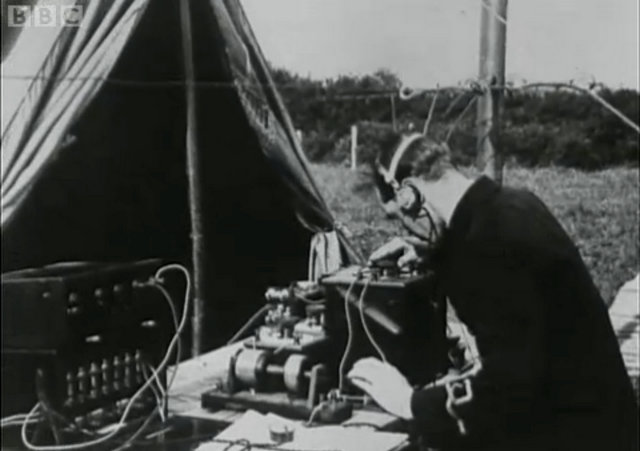
A Desperate Need for Connection
For Allied prisoners of war, life in Japanese camps was a daily test of endurance. Starvation, disease, forced labor, and mental torment were routine. But perhaps the most insidious form of suffering was isolation. Cut off from the outside world, these men had no idea if their families were safe, if their countries were winning the war, or if rescue would ever come. Fear fed on uncertainty.
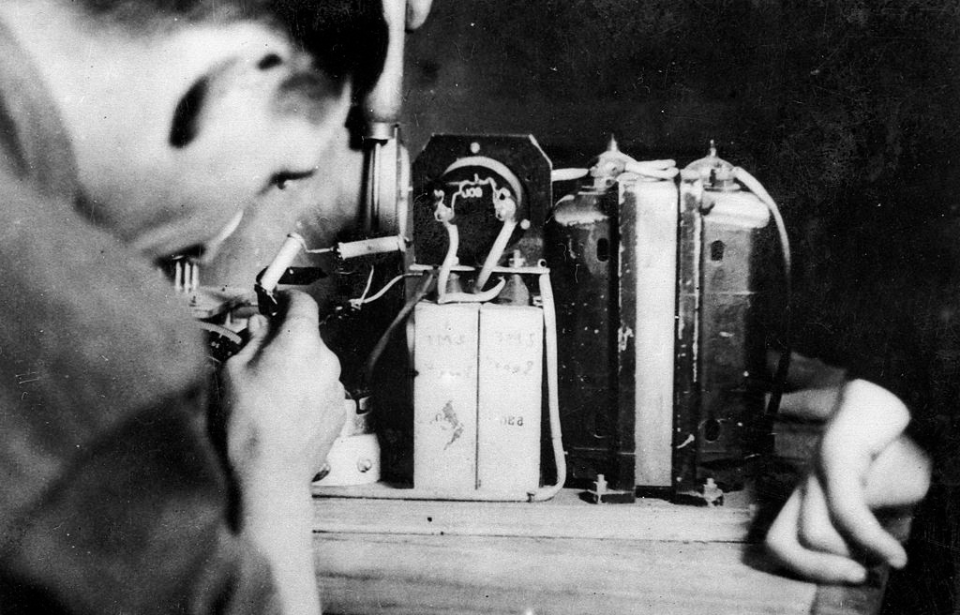
This was the world Hutchison found himself in. But instead of surrendering to despair, he began secretly scavenging for materials tiny bits of metal, discarded wire, and the most precious component of all: flashlight batteries stolen from the guards.
Video:
Wartime Radio The Secret Listeners BBC (1979)
Building a Radio Behind Enemy Lines
To call it a radio almost does it a disservice. It was a Frankenstein of electrical scraps built with no proper tools, under constant surveillance, and in an environment where discovery meant torture or death. But Hutchison, who had a background in engineering, understood how to rig something together. He had no blueprint, only memory and determination.
Piece by piece, he assembled a crystal radio capable of receiving shortwave signals. The device was cleverly hidden in the coils of barbed wire fencing an area no guard wanted to inspect too closely. It ran silently, drawing minimal power from weak batteries that were charged just enough to pick up distant broadcasts from Allied forces or the Voice of America.
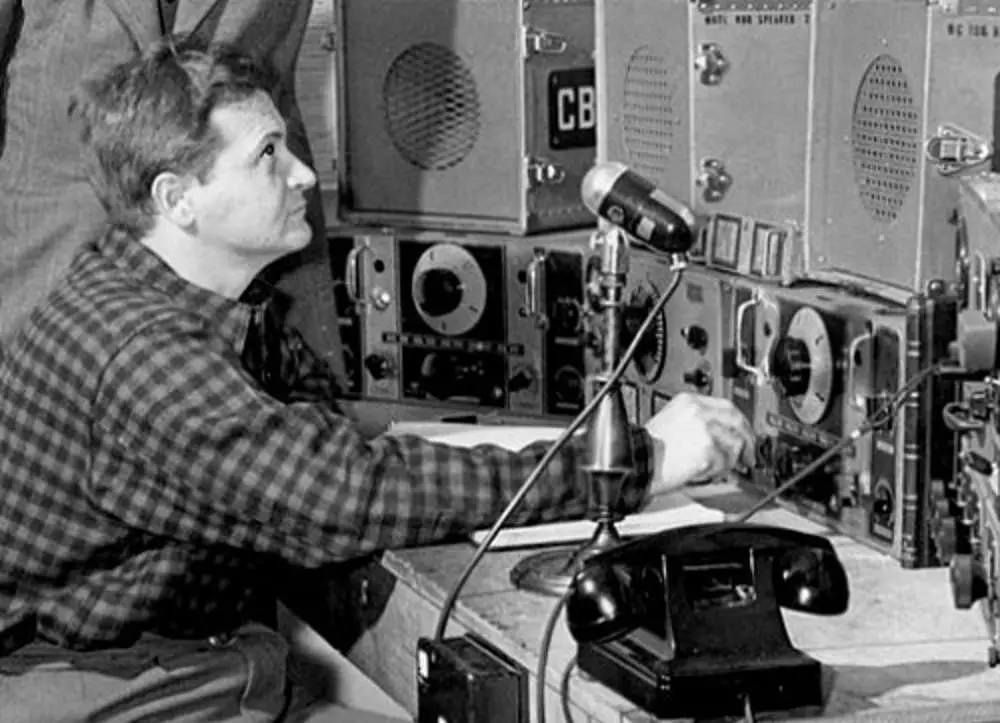
News That Changed Everything
Once operational, the radio became a miracle. Every whisper from the outside world was gold. Hutchison didn’t just keep the information to himself he carefully relayed the news, often rewriting it as camp bulletins or delivering updates through coded conversations. When Allied forces landed in Leyte Gulf, the POWs knew. When Japanese losses mounted, they had hope. The psychological impact was enormous.
Knowing that liberation was inching closer kept many from giving up. Men who might have lain down and died from despair found strength. “It was like hearing a heartbeat when you thought the world was dead,” one survivor later said.
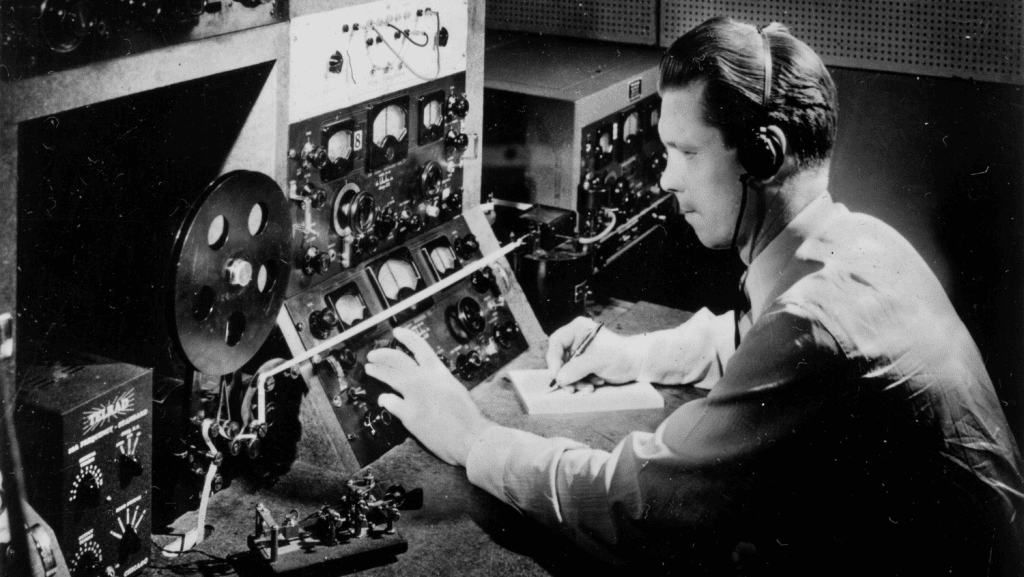
Risking Death for a Whisper of Hope
Make no mistake Hutchison knew what he was doing could cost him his life. Japanese guards routinely tortured prisoners for less. Yet, he continued, day after day, nurturing the fragile machine, keeping it secret, and safeguarding the information he received. Courage, in this case, wasn’t found on the battlefield it was in silence, in shadows, and in wires no thicker than thread.
Video:
“I am NOT a hero” – WW2 Veteran’s Emotional Response
What Hutchison built wasn’t just a radio it was resistance. It was defiance in the face of dehumanization. In a world where prisoners were stripped of names and dignity, this device gave them back their humanity. They were no longer just captives they were informed, alert, and preparing for survival.
Legacy Beyond the Wires
Captain Russell Hutchison survived the war, but for decades, his story remained mostly unknown outside military circles. It wasn’t loud, flashy, or celebrated with medals. But among those prisoners whose lives he touched, his name was sacred. He represented ingenuity, bravery, and the power of one man to make a difference even when all odds say otherwise.
In an age where we’re surrounded by instant news, entertainment, and connection, it’s easy to forget the luxury that is information. For those men in the camp, Hutchison’s barbed-wire radio wasn’t just a piece of tech it was a thread back to the world, and a reason to keep going.
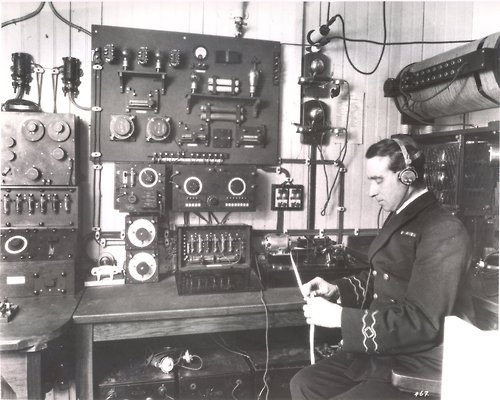
Conclusion
The story of Captain Russell Hutchison reminds us that heroes don’t always carry rifles or fly planes. Sometimes, they carry wire, patience, and an unbreakable spirit. In the silence of a prison camp, with death only feet away, Hutchison built something powerful hope. And in doing so, he saved lives without ever firing a shot.
This is a chapter of history we should never forget.


